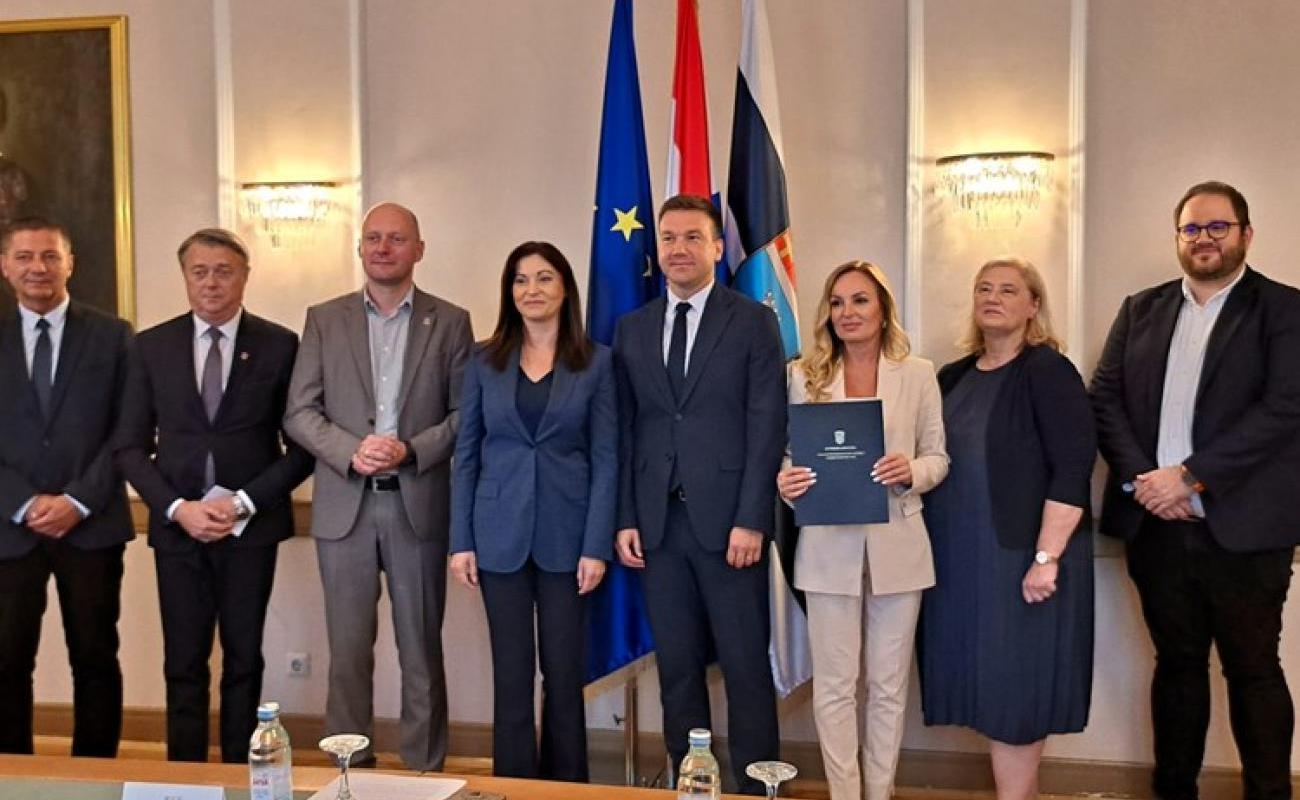Osijek gets a center for ecological mosquito control

Within the framework of the Interreg VI-A Hungary-Croatia 2021-2027 cross-border programme, the State Secretary at the Ministry of Regional Development and European Union Funds in Osijek handed over the contract for the EU project MOSQUITOLAB, which will enable the development of innovative methods to reduce the mosquito population, and thus significantly improve the quality of life of citizens.
In addition to State Secretary Domagoj Mikulić, the contract was also presented by the County Prefect of Osijek-Baranja County Nataša Tramišak, Director of the Directorate for European Territorial Cooperation of the Ministry of Regional Development and European Union Funds Stella Arneri, and Director of the Osijek-Baranja County Teaching Institute Nataša Turić.
The MOSQUITOLAB project, with a total value of 6.1 million euros, is co-financed by EU funds in the amount of 80%. This is the first project implemented within the cross-border Interreg VI-A program of the Croatia-Hungary 2021 - 2027 program, in which the Republic of Croatia, i.e. the Ministry, has recently played the role of the Managing Authority.
The lead partner in the project is the Osijek-Baranja County Public Health Institute, and the project partners from Hungary are the University of Pécs and the non-profit company BIOKOM Pécs. The project duration is 48 months, within which, among other things, a Mosquito Control Center will be built in Osijek.
The center will be a place of cooperation, research and development of Croatian and Hungarian partners, with the aim of establishing control and prevention of mosquito infestations. Namely, as a result of climate change in Hungary and Croatia, especially in the area around the Kopački rit Nature Park, invasive species of mosquitoes that transmit diseases that were previously not present in our regions are appearing more and more often.
So far, the most common method used to control mosquitoes in these areas has been spraying, which poses risks to humans and animals. Thanks to the MOSQUITOLAB project, Croatia will gain a center where, with the help of Hungarian partners, the SIT method of sterilizing male mosquitoes will be developed, which is much more effective than spraying and is environmentally friendly.
MOSQUITOLAB is an excellent example of a cross-border project that solves common challenges, encourages community connections, and strengthens cooperation in areas that do not recognize borders - such as environmental protection and health.
